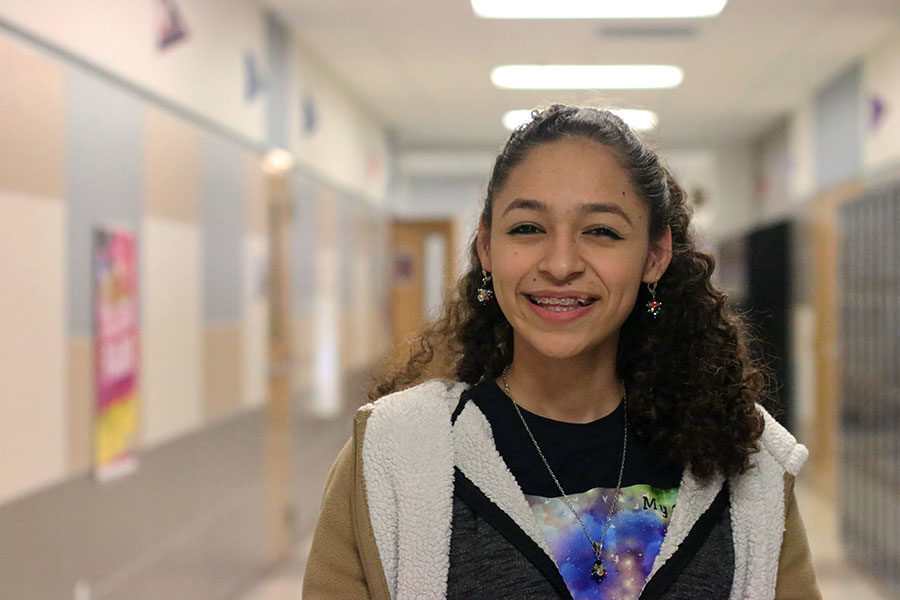“It is a great opportunity for me to be here to be able to overcome this. I thought maybe they were going to send me back to my country.”
Adjusting to a new way of life
She walks into what is described as “the cooler.”
Her breath can be seen as she exhales, hands trembling.
While hands search her body for illegal items, she turns around to look for her mom but notices she’s not there. Not long after, a uniform is pushed into her hands for her to change into.
She then is shoved into a cell and given an ice-cold sandwich. As time passes on, it becomes unknown whether it is night or day. When she starts falling asleep with only aluminum as a blanket, the immigration police start to walk around kicking people awake to sign papers.
Sophomore Maryuri Zelaya was born in Ceiba Atlantida, Honduras and lived there for 15 years. Maryuri’s mother Laura Araceli Zelaya Solorzano moved her and her daughter to the United States because of the violence in Honduras and Maryuri’s father was not helping them financially.
“When I entered the United States I had to spend three days in a cooler, which is where you sleep on the floor and you wrap yourself up with things like aluminum and then have to stay locked up in a home for a month without going anywhere,” Maryuri said. “It’s like a prison they call it a cooler because they put the air very strong.”
After meeting Maryuri last year, English teacher Carolyn Pedrazine thought she was a quiet person but soon realized she was the opposite. She saw how Maryuri became quite social and goofy with her friends after joining her class this year. But Pedrazine knows Maryuri has struggled with the different lifestyle and language but believes she will overcome it and become a strong woman.
“Despite her hardships, Maryuri has adjusted well to life in the United States and continues to move forward with her goals even though it is difficult in school, especially since she is still learning English,” Pedrazine said. “She has the same struggles as any teen, but they are amplified because she is living here instead of in Honduras. However, I would imagine there are some things that are easier and safer for her here than there.”
With no one capable enough to take care of Maryuri, she had to leave with her mother to the United States and leave her family behind. Because her family doesn’t have the ability to visit her here, Maryuri wishes she could see them in Honduras one more time.
“I miss the cultural parties [and how they] ended super late, [but] here you can’t even make any noise,” Maryuri said. “[Also I miss] the food from Honduras [like] balasas, pollo con tajadas, sopa de Caracol [and] Catrachitas because here it tastes distant.”
Since their move to the United States, Laura wishes for her and her daughter to get used to the food and way of life in the United States. In Laura’s opinion, Maryuri has changed in the way she talks and acts but has remained humble and sincere.
“[The United States] is better in all its aspects, in education and in a better life, there are more sources of work and many things Honduras does not have,” Laura said. “I hope she can overcome all of this and put a lot of hard work into studying so she can be what I could not be.”

